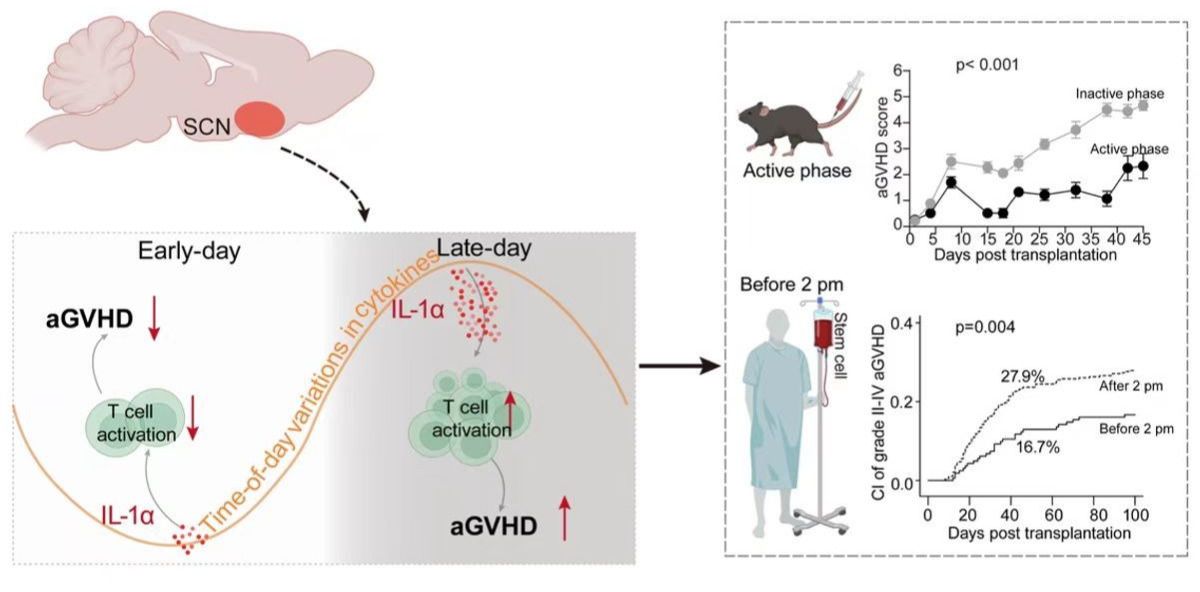A collaborative research team led by Prof. ZHAN Cheng from University of Science and Technology of China (USTC) of the Chinese Academy of Sciences and Chief Physician ZHU Xiaoyu from the Department of Hematology at the First Affiliated Hospital of the University of Science and Technology of China has identified the impact of stem cell infusion timing on the incidence and severity of acute graft-versus-host disease (aGVHD) in allogeneic hematopoietic stem cell transplantation (allo-HSCT), highlighting the role of the recipient’s circadian rhythms. The result is published in Cell on March 31.
Allo-HSCT is a critical therapeutic strategy for diseases including hematological malignancies, bone marrow failure syndromes, and congenital immunodeficiencies. However, despite effective prophylactic measures, aGVHD remains a common complication and a leading cause of transplant-related mortality in allo-HSCT.
The research team pioneered a novel approach taking the recipient's circadian rhythms into consideration. Using animal models and clinical cohort studies, they explored how stem cell infusion timing affects aGVHD development. Their findings underscored the importance of infusion timing in allo-HSCT and suggested that infusion early in the day should serve as a simple yet efficient way for aGVHD prophylaxis.
To investigate the mechanisms, the researchers established MHC-mismatched and xenogeneic aGVHD mouse models, infusing stem cells at different times of the day. Results indicated that while the timing of stem cell collection had no impact on aGVHD development, the recipient’s circadian rhythms significantly influenced the onset and severity of aGVHD.
Furthermore, the research team conducted a single-center peripheral blood stem cell transplantation cohort study as well as a multicenter haploidentical transplantation validation cohort study in China. Both clinical studies corroborated the results above.

Brain-body interaction impacts aGVHD via the biological rhythm. (Image by Prof. ZHAN’s team)
This study provides strong evidence that circadian rhythms play a crucial role in allo-HSCT, highlighting the need for clinicians to consider infusion timing when performing transplants. By optimizing stem cell infusion timing, this research opens a new avenue for reducing the risk of aGVHD and improving prognosis in allo-HSCT.
Paper link: https://www.cell.com/cell/abstract/S0092-8674(25)00295-8
(Written by SHEN Xinyi, Edited by ZHAO Zheqian, USTC News Center)